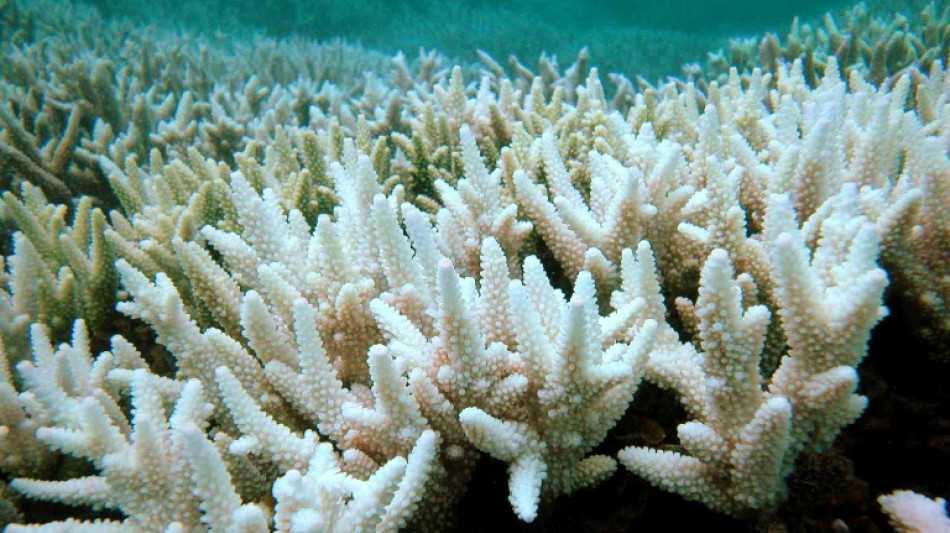
-
 IOC chief Coventry calls for focus on sport, not politics
IOC chief Coventry calls for focus on sport, not politics
-
McNeil's partner hits out at 'brutal' football industry after Palace move collapses

-
 Proud moment as Prendergast brothers picked to start for Ireland
Proud moment as Prendergast brothers picked to start for Ireland
-
Germany has highest share of older workers in EU

-
 Teen swims four hours to save family lost at sea off Australia
Teen swims four hours to save family lost at sea off Australia
-
Ethiopia denies Trump claim mega-dam was financed by US

-
 Russia resumes strikes on freezing Ukrainian capital ahead of talks
Russia resumes strikes on freezing Ukrainian capital ahead of talks
-
Malaysian court acquits French man on drug charges

-
 Switch 2 sales boost Nintendo results but chip shortage looms
Switch 2 sales boost Nintendo results but chip shortage looms
-
From rations to G20's doorstep: Poland savours economic 'miracle'

-
 Russia resumes strikes on freezing Ukrainian capital
Russia resumes strikes on freezing Ukrainian capital
-
'Way too far': Latino Trump voters shocked by Minneapolis crackdown

-
 England and Brook seek redemption at T20 World Cup
England and Brook seek redemption at T20 World Cup
-
Coach Gambhir under pressure as India aim for back-to-back T20 triumphs

-
 'Helmets off': NFL stars open up as Super Bowl circus begins
'Helmets off': NFL stars open up as Super Bowl circus begins
-
Japan coach Jones says 'fair' World Cup schedule helps small teams

-
 Do not write Ireland off as a rugby force, says ex-prop Ross
Do not write Ireland off as a rugby force, says ex-prop Ross
-
Winter Olympics 2026: AFP guide to Alpine Skiing races

-
 Winter Olympics to showcase Italian venues and global tensions
Winter Olympics to showcase Italian venues and global tensions
-
Buoyant England eager to end Franco-Irish grip on Six Nations

-
 China to ban hidden car door handles in industry shift
China to ban hidden car door handles in industry shift
-
Sengun leads Rockets past Pacers, Ball leads Hornets fightback

-
 Waymo raises $16 bn to fuel global robotaxi expansion
Waymo raises $16 bn to fuel global robotaxi expansion
-
Netflix to livestream BTS comeback concert in K-pop mega event

-
 Rural India powers global AI models
Rural India powers global AI models
-
Equities, metals, oil rebound after Asia-wide rout

-
 Bencic, Svitolina make history as mothers inside tennis top 10
Bencic, Svitolina make history as mothers inside tennis top 10
-
Italy's spread-out Olympics face transport challenge

-
 Son of Norway crown princess stands trial for multiple rapes
Son of Norway crown princess stands trial for multiple rapes
-
Side hustle: Part-time refs take charge of Super Bowl

-
 Paying for a selfie: Rome starts charging for Trevi Fountain
Paying for a selfie: Rome starts charging for Trevi Fountain
-
Faced with Trump, Pope Leo opts for indirect diplomacy

-
 NFL chief expects Bad Bunny to unite Super Bowl audience
NFL chief expects Bad Bunny to unite Super Bowl audience
-
Australia's Hazlewood to miss start of T20 World Cup

-
 Bill, Hillary Clinton to testify in US House Epstein probe
Bill, Hillary Clinton to testify in US House Epstein probe
-
Cuba confirms 'communications' with US, but says no negotiations yet

-
 From 'watch his ass' to White House talks for Trump and Petro
From 'watch his ass' to White House talks for Trump and Petro
-
Trump says not 'ripping' down Kennedy Center -- much

-
 Sunderland rout 'childish' Burnley
Sunderland rout 'childish' Burnley
-
Musk merges xAI into SpaceX in bid to build space data centers

-
 Former France striker Benzema switches Saudi clubs
Former France striker Benzema switches Saudi clubs
-
Sunderland rout hapless Burnley

-
 Costa Rican president-elect looks to Bukele for help against crime
Costa Rican president-elect looks to Bukele for help against crime
-
Hosts Australia to open Rugby World Cup against Hong Kong

-
 New York records 13 cold-related deaths since late January
New York records 13 cold-related deaths since late January
-
In post-Maduro Venezuela, pro- and anti-government workers march for better pay

-
 Romero slams 'disgraceful' Spurs squad depth
Romero slams 'disgraceful' Spurs squad depth
-
Trump says India, US strike trade deal

-
 Cuban tourism in crisis; visitors repelled by fuel, power shortages
Cuban tourism in crisis; visitors repelled by fuel, power shortages
-
Liverpool set for Jacquet deal, Palace sign Strand Larsen on deadline day


Corals doomed even if global climate goals met: study
Coral reefs that anchor a quarter of marine wildlife and the livelihoods of more than half-a-billion people will most likely be wiped out even if global warming is capped within Paris climate goals, researchers said Tuesday.
An average increase of 1.5 degrees Celsius above pre-industrial levels would see more than 99 percent of the world's coral reefs unable to recover from ever more frequent marine heat waves, they reported in the journal PLOS Climate.
At two degrees of warming, mortality will be 100 percent according to the study, which used a new generation of climate models with an unprecedented resolution of one square kilometre.
"The stark reality is that there is no safe limit of global warming for coral reefs," lead author Adele Dixon, a researcher at the University of Leeds' School of Biology, told AFP.
"1.5C is still too much warming for the ecosystems on the frontline of climate change."
The 2015 Paris Agreement enjoins nearly 200 nations to keep global heating "well below" 2C (36 degrees Fahrenheit).
But with more deadly storms, floods, heatwaves and droughts after only 1.1C of warming to date, the world has embraced the treaty's more ambitious aspirational goal of a 1.5C limit.
A landmark report in August by the UN's IPCC climate science panel said global temperatures could hit the 1.5C threshold as soon as 2030.
In 2018, the IPCC predicted that 70 to 90 percent of corals would be lost at the 1.5C threshold, and 99 percent if temperatures rose another half-a-degree.
The new findings suggest those grim forecasts were in fact unduly optimistic.
- Marine heatwaves -
"Our work shows that corals worldwide will be even more at risk from climate change than we thought," Dixon said.
The problem is marine heatwaves and the time it takes for living coral to recover from them, a healing period known as "thermal refugia".
Coral communities usually need at least 10 years to bounce back, and that's assuming "all other factors" -- no pollution or dynamite fishing, for example -- "are optimal", said co-author Maria Berger, also at Leeds.
But increased warming is reducing the length of thermal refugia beyond the ability of corals to adapt.
"We project that more than 99 percent of coral reefs will be exposed at 1.5C to intolerable thermal stress, and 100 percent of coral reefs at 2C," Berger told AFP.
Australia's Great Barrier Reef, the largest coral system in the world, has seen five mass bleaching events in the last 25 years.
An unpublished study obtained by AFP, written by experts at the US National Oceanic and Atmospheric Administration's Coral Reef Watch unit, says the Great Barrier Reef was in the grips of a record-breaking heat spell yet again in November and December.
Oceans absorb about 93 percent of the excess heat from greenhouse gas emissions, shielding land surfaces but generating huge, long-lasting marine heatwaves that are already pushing many species of corals past their limits of tolerance.
A single so-called bleaching event in 1998 caused by warming waters wiped out eight percent of all corals.
Coral reefs cover only a tiny fraction -- 0.2 percent -- of the ocean floor, but they are home to at least a quarter of all marine animals and plants.
Besides supporting marine ecosystems, they also provide protein, jobs and protection from storms and shoreline erosion for hundreds of millions of people worldwide.
The value of goods and services from coral reefs is about $2.7 trillion per year, including $36 billion in tourism, the report said.
Global warming, with the help of pollution, wiped out 14 percent of the world's coral reefs from 2009 to 2018, leaving graveyards of bleached skeletons where vibrant ecosystems once thrived, recent research has shown.
Loss of coral during that period varied by region, ranging from five percent in East Asia to 95 percent in the eastern tropical Pacific.
H.Portela--PC



